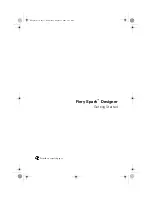
6-7
Cisco Unified Communications Manager Managed Services Guide
OL-22523-01
Chapter 6 Cisco Unified Serviceability Alarms and CiscoLog Messages
Cisco Unified Serviceability Alarms and CiscoLog Messages
Note
With regards to the compliance with Cisco IOS format. Cisco IOS Release 12.3 supports producing
hostname, IP address, or any user-defined string in the HOST field. If it is configured to provide a
hostname and it is not set on the device, it will use a string such as “Router.”
The length of the HOST field must not exceed 255 octets.
FQDN & Hostname
If multiple FQDNs or hostnames are known for a given system, applications must use the primary
FQDN/hostname or an arbitrary one if no primary is designated. However, applications must use the
same HOST field value until some relevant configuration change takes place. In other words, the
FQDN/hostname value should not arbitrarily change from message to message if system is configured
with multiple FQDNs/hostnames.
Only printable US ASCII characters (those with decimal values 32-126) and foreign language characters
are allowed in the HOST field when encoding an FQDN or hostname. The appropriate character set and
encoding for HOST should be compliant with RFC 1123 / STD-3.
The acceptable character set per these standards includes US ASCII letters, numbers, dash and dot
separator characters (although not starting or ending with a dash). The reason that these are only
recommendations of adhering to these standards is that, in practice, many hosts do not follow the
convention and use characters such as underscore in the hostname. However, the HOST field cannot
contain a character sequence of “: “ (colon and space) as this sequence is used as a field delimiter in the
CiscoLog format.
Foreign language characters outside of the printable US ASCII characters have to be encoded according
to internationalization rules.
Use of non-printable (control) ASCII characters is not allowed in the HOST field. Control characters
include characters with ASCII decimal values 0-31 and 127. If an application provides a
CiscoLog-compliant library with a host string, which includes one or more control characters, the
logging library must do the following. If the horizontal tab character (ASCII decimal value 9) is
encountered, it must be replaced with one or more space characters (ASCII decimal value 32). Eight
spaces per tab are recommended because this is a convention on most Unix and Windows platforms.
Other control characters must each be replaced with a question mark character (ASCII decimal value
63).
While DNS is letter-case agnostic, CiscoLog places an additional recommendation of using only
lower-case characters in the HOST field for ease of readability. The use of the trailing dot at the end of
the FQDN is optional. The following examples are valid HOST fields:
•
host123
•
host-123
•
host123.cisco.com
•
host123.cisco.com.
IP Addresses
The IP address value used in the HOST field can be either an IPv4 or IPv6 address. If a device has
multiple IP addresses, the primary IP address of the device must be used regardless of the interface
through which the CiscoLog message is sent to syslog server. If no primary IP address is designated, a
fixed/static IP address is preferred to a dynamically assigned one. If multiple static IP addresses exist,
any one can be used, but it must be used consistently in all messages until a relevant configuration event
occurs on the system.
Содержание MCS-7825-H3-IPC1
Страница 28: ...Contents xxvi Cisco Unified Communications Manager Managed Services Guide OL 22523 01 ...
Страница 34: ...xxxii Cisco Unified Communications Manager Managed Services Guide OL 22523 01 Related Documentation ...
Страница 974: ...Index IN 8 Cisco Unified Communications Manager Managed Services Guide OL 22523 01 ...
















































